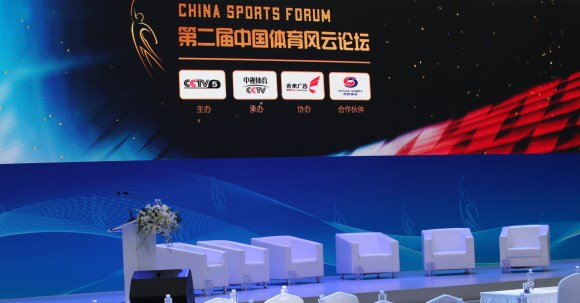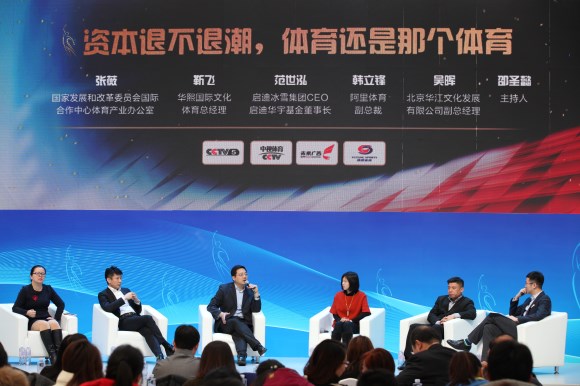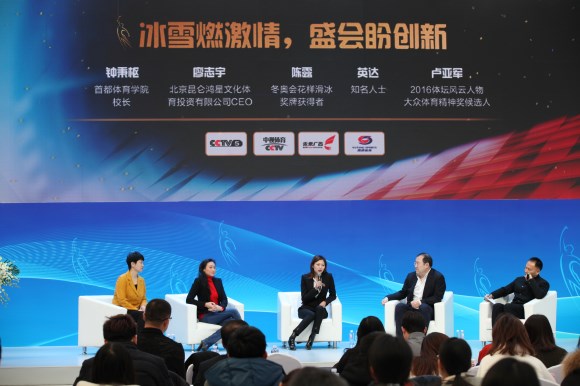The 2016 China Sports Forum was held at the National Aquatic Centre (Water Cube) on the morning of Jan 14th. The forum was hosted by CCTV5, undertaken by CCTV Sports & Entertainment Co Ltd. and co-organized by Beijing Future Advertising Co Ltd. Yutang Sports, as a partner, have taken part in the organization and media coverage of the forum.
Sports will not change, whether the capital is large or small
According to Zhang Wei, Office Director of the Department of International Cooperation of the National Development and Reform Commission (NDRC), some progress has been made since the No.46 Document was published, including strengthened emphasis on the sports industry from the authoritative department, a higher sports consumption level, a higher proportion of private capital in sports investment, flourishing sports training and a rapid increase in the number of sports enterprises.
However, there are still some constraints on the further development of the sports industry. The relatively low industry position leads to a lack of government support. The coordination mechanism among departments requires further improvement. A shortage of professionals in the sports industry is also a big problem.
According to Jin Fei, General Manager of Bloomage International Culture and Sports, it is content along with having a professional team that is important in the operation of large-scale stadiums. Without attractive content, the so-called Internet plus, intelligent stadium and the combination between online and offline will all be meaningless.
Han Lifeng, Vice President of Ali Sports, talked about the experience of Ali Sports in stadium operation. According to him, China’s sports industry is not mature yet, and exploratory steps still need to be taken regarding the combination of Internet and sports. Ali Sports will keep focusing on stadium services based on its original plan.
Fan Shihong, CEO of Tus-Ice & Snow Group and Chairman of the Tus Huayu Fund, pointed out the serious danger of a bubble. As the whole industry chain is not profitable enough, the outlook for sustainable development looks gloomy.
Snow brings passion, Sports needs innovation
Chen Lu, a Figure Skating champion in two Winter Olympic Games, and Lu Yajun, a nominee for the Public Sports Spirit Award of CCTV Sports Personality of the Year in 2016, are both dedicated sports training enthusiasts.
Chen Lu indicates that she wants to make some real contribution to the development of winter sports, so she has founded her own company, Oshine Sports, to provide skating training for both professionals and amateurs. Lu Yajun says that her priority is to nurture young talents. She has led the Olympic champions to visit schools and teach kids to skate, so every kid will love winter sports and skating.
Liao Zhiyu, CEO of Beijing Kunlun Redstar, says that they are a purely market-oriented professional club, and they are optimistic about the future of ice hockey in China. The bottleneck of talent training is always youth teams building, and before their club was founded, playing ice hockey was not a promising career. Popularizing the hockey culture is a significant mission of the club, and also something the nation attaches great importance to. At LeSports Center, there are on average 5,000 spectators for every hockey game, which shows that hockey is becoming popular with ordinary Chinese people.
China’s sports industry is growing, and discussions about the sports industry will continue. Sports investment and winter sports will continue to be the buzzwords in the sports industry for a long time. What we need to do is to find the key to sports development, get professional guidance, take a long-term view on issues and start from the bottom.
Proofread by Sean O Diobhilin


